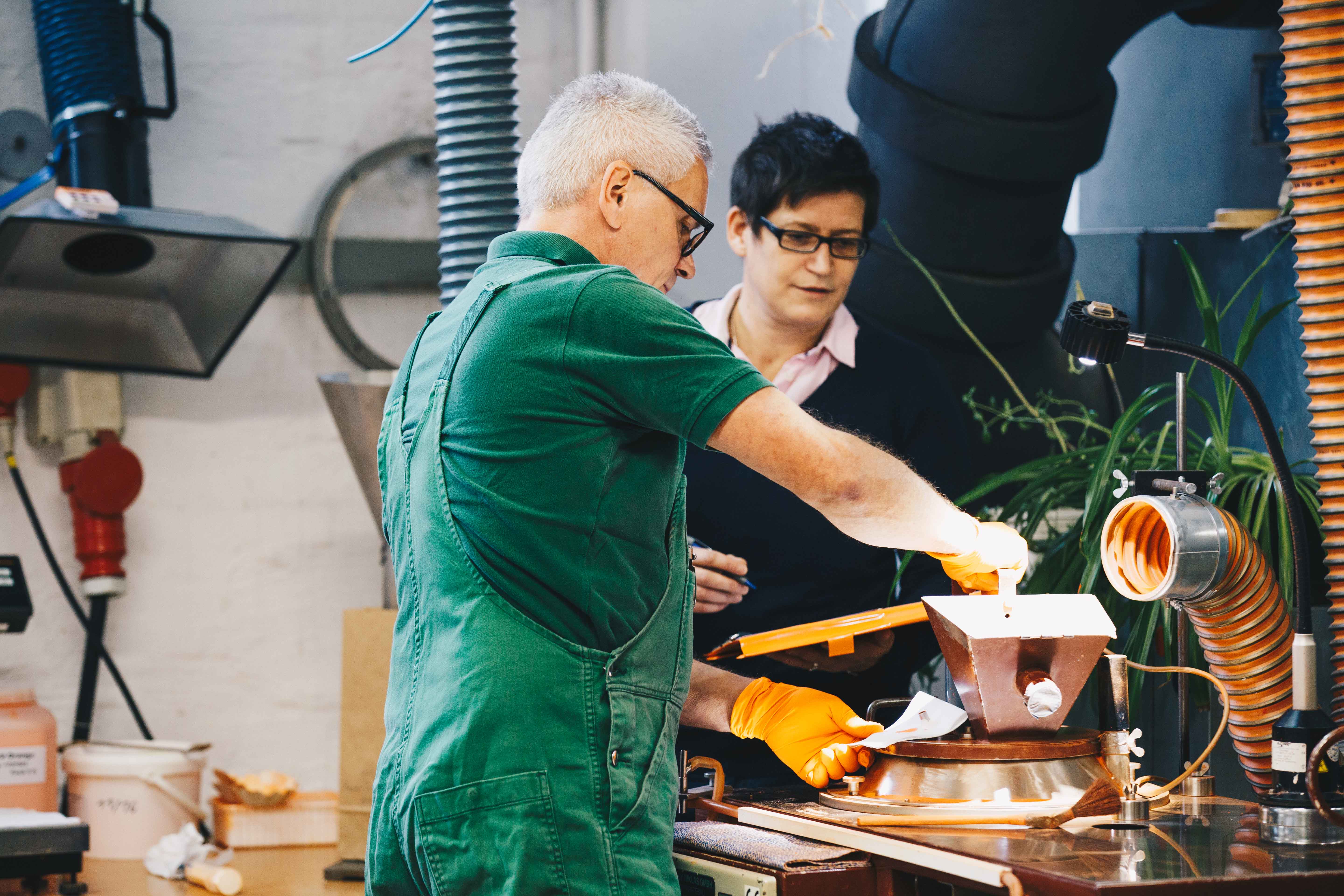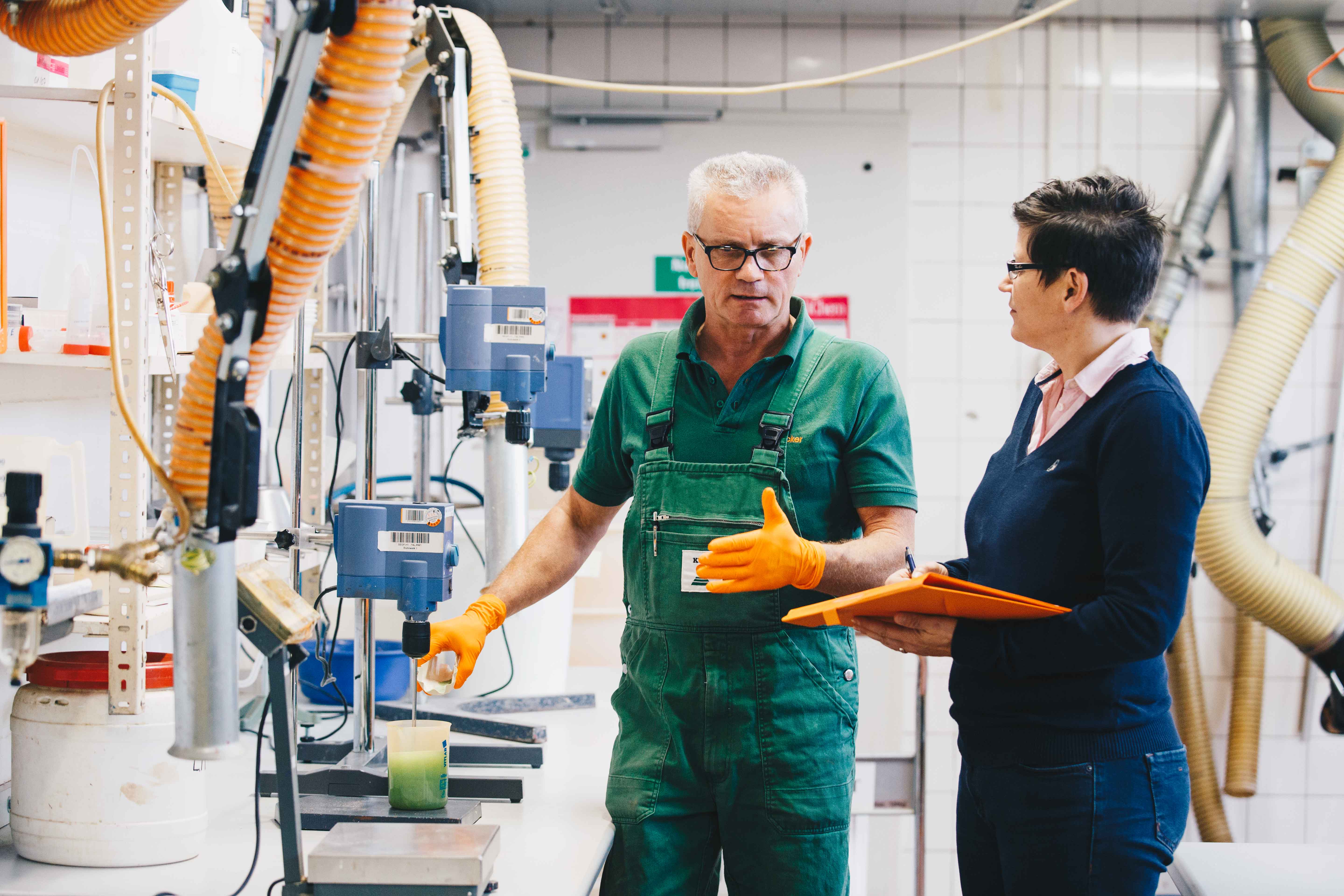At first sight, the bird issue seems to be relatively small. After all, only around 20,000 hectares of organic corn are produced in Germany per year. But the potential of sustainable plant-based disinfectant is much greater: In Germany, conventional corn is sown on around 2.5 million hectares. Currently, there is an active substance methiocarb (commercial name “Mesurol”), which protects against the frit fly in order to decrease the risk of infection with corn smut and also to prevent birds from eating the seeds. “But the trend is towards less chemicals on the field,” says Jorek. “In addition, sustainability is one of the basic company goals of KWS.” KWS offers farmers many different crop plants, among them also catch crops for an optimal and sustainable crop rotation. Other crops include many special species for organic farming. This makes the company in Einbeck different from many other breeders who concentrate only on a few types of crop plants.
Cooperation of many experts
Working with plant extracts, KWS also cooperates with certain vertebrate researchers at the Julius Kühn-Institut (JKI), experts of the FH Bielefeld and the company Phytoplan in Heidelberg, a specialist in natural active substances. Phytoplan produces and delivers extracts or individual fractions of extracts. The JKI is responsible for project coordination and feeding experiments in aviaries. The FH Bielefeld develops formulation possibilities for an increased durability and effectiveness of the disinfectant agent on the seeds. The project is funded by the Landwirtschaftliche Rentenbank.
The parties involved do not want to reveal how the extracts work and how well they work, so as not to endanger potential patents in this field. “We already have effective repellent extracts that have positive effects, even in the field, and do not harm the seedling. Now we have to make sure the substances adhere to the grain (kernel) in the best possible way and still have a concentrated effect in the bird’s beak even after three weeks in the ground.” Jorek and her team always sow the corn treated with the promising plant extracts around May 1 and then observe the experimental areas and the birds in detail.
No fear of scarecrows
As in the previous years, they are also closely observed by hundreds of bird eyes. Especially the intelligent crows have learned how to deal with humans. They seem to know that they are not allowed to be hunted. The large scarecrow kites some 32 yards up in the air do not scare them either, Jorek said. The crows also ignore round scarecrows in the field, that move in the wind (brand: “Böser Blick”). On top of that: “It seems as if the crows have ‘messengers’ in their ranks, that recognize when the farmer is working on the field. They then inform their own kind,” Jorek has observed again and again. But the research team keeps a close eye on the situation: After each test, the researchers know a little bit more about the tastes birds do not like.
